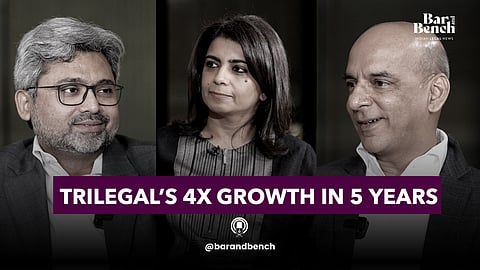Nishant Parikh and Sridhar Gorthi with Pallavi Saluja
Interviews
Nishant Parikh and Sridhar Gorthi on 25 years of Trilegal: Growth, entrepreneurial partners and international plans
The firm's partners speak about the early years of the firm, how it grew, aggressive lateral hiring, entry of foreign law firms and much more.

